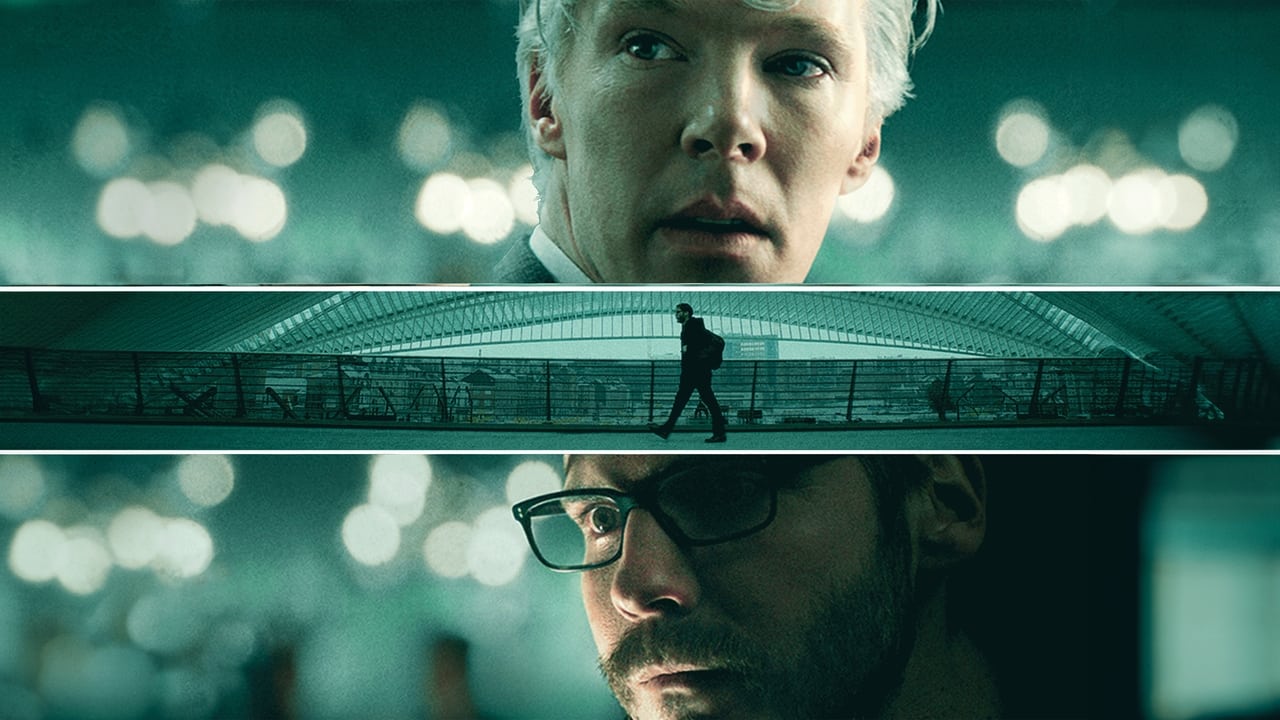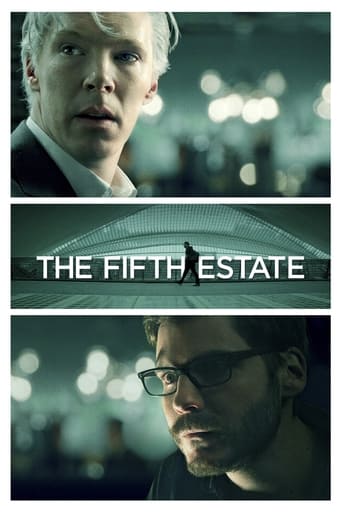

the leading man is my tpye
... View MoreYawn. Poorly Filmed Snooze Fest.
... View MoreOne of my all time favorites.
... View MoreIt’s an especially fun movie from a director and cast who are clearly having a good time allowing themselves to let loose.
... View MoreWhat worked: A true tale is always better than fiction. How much was omitted, dramatized, and cut out/merged due to time constraints always changes the story was in the back of my mind as I watched. However, I find the story is about characters Assange and his cohorts interesting. As the Fifth Estate unfolds we find out what makes Assange tick. The story of Wikileaks itself unfolds is even more interesting. What Wikileaks actual did the how, why, what is exposed is just fascinating. Both sub stories unfold at a pace where the view is wanting to know more. Mixed in is the sub cutler of the hackers, cyber underground give a realist feel. All three components makes for the an interesting story. The thesis of the right to know vs personal privacy/ lives at risk is a great debate for a memorable ending. Was Assange and Wiki's strict policy with time lines and with out redaction too much? The Fifth Estate shows the effects of news on people both good and bad which is a nice change from the plethora of good vs evil super hero movies.
... View MoreIts been a while since i found a thriller that i enjoyed. was made all the more interesting by the fact that this was around real events. the leaking of truth that so called western democracies would rather have buried, such as the US helicopter killings of 2 reuters journalists and dozens of civilians is just one of the groundbreaking stories that has been broken to the public by the whistleblowers. its also an insight into the relationships and tension between the various founders behind this global organisation.
... View MoreIn Medieval Europe, the First Estate was the clergy, The Second Estate was the nobility and The Third Estate were the commoners – basically, what we would call today "the 99%". The term The Fourth Estate emerged later as a designation for a group of people who aren't large in numbers, but are great in influence – usually the news media. This leads us to the title of the 2013 film "The Fifth Estate" (R, 2:08). What if there were another group of people, further outside the older classes of society – a group that was an offshoot of The Fourth Estate, smaller in size, but greater in influence? In this, The Information Age, the internet has created such a group, a group that plays a role similar to The Fourth Estate, but does it completely independently and with no accountability. It's a group that is influential enough, and different enough from the established media, that a new name seems appropriate to describe this group. This is The Fifth Estate, and there is no better example of The Fifth Estate than the WikiLeaks website, publisher of documents leaked to the site by people within corporations, military and government organizations who feel that they have a responsibility to expose corruption, questionable practices, lies and policies and practices with which the leaker simply disagrees. Calling a movie about WikiLeaks "The Fifth Estate" begs the question: Can people who work with such an organization really be called journalists, are they lawbreakers, or are they something new and different, something that defies definition? It's an important question and it's what this film asks its audience.WikiLeaks went online in 2007 and was the creation of one man, Australian computer hacker – turned activist and publisher Julian Assange. Benedict Cumberbatch does a remarkable job portraying the enigma that is Assange. In Cumberbatch's hands, Assange is a brilliant visionary as well as arrogant, rude, manipulative, paranoid, self-righteous and definitely lacking in the social skills. He makes Apple Computers co-founder Steve Jobs look like a puppy dog. Daniel Bruehl plays Daniel Berg, a computer genius who hitches his wagon to Assange's rising star. Berg believes in Assange's goal of revealing the truth about powerful organizations, especially those corrupt, scandalous, embarrassing, or just uncomfortable truths which Assange, Berg and a small group of friends believe can make a difference if exposed to the light of day. Over time, however, Berg comes to see Assange for the man he really is and grows increasingly upset over what he sees as Assange's recklessness in publishing hundreds of thousands of leaked U.S. military and State Department documents and communications without redacting names and other information that, if made public, could endanger the lives of all kinds of people all over the world. That's where Laura Linney, Stanley Tucci and Anthony Mackey come in, as government officials trying to limit the damage from WikiLeaks releasing the biggest treasure trove of documents the website (or any organization) has received from a single source. That source was former Army intelligence analyst Bradley Manning, eventually convicted of violating the Espionage Act and other crimes and sentenced to 35 years in prison (and has since assumed the identity Chelsea Manning).This should be seen as an important movie, regardless of one's opinion of the people and events portrayed. First off, WikiLeaks (along with the connections established among people around the world on social media websites) helped lead to the Arab Spring and other significant political changes in many different countries over the few years following Manning's actions. Secondly, whether you agree or disagree with Assange's approach to journalism (or whether you even consider him a journalist at all), this movie raises important questions that existed before the world even heard of Julian Assange, will exist into the foreseeable future, and may never go away. When does the freedom of the press enshrined in the U.S. Constitution conflict with the basic human rights to life, liberty and the pursuit of happiness promised in the Declaration of Independence? Is there any way to hold people who post news on the internet accountable without violating our most treasured freedoms? Where is the line between whistle-blower and traitor – and who decides where to draw that line? This film suggests the importance of asking all these questions and more without coming right out and asking them. This film also avoids suggesting that there are any easy answers. As entertainment, many will find "The Fifth Estate" a bit dry, a bit long or both. The director does his best to keep the film engaging by getting the best out of his talented cast, editing and scoring the film to create tension and using creative settings and camera work to represent certain concepts and events in the story. However, the real strength of this film is in its educational value and its ability to get the audience to think about some significant issues that face our country and our world - right now, today - and aren't going away any time soon. At the end of the day, isn't that one of the things that we want (and really need) movies to do – at least some of the time? That is a question that I think this film does answer and that answer is a resounding "yes"! For the significance of this film, its execution and its overall entertainment value, I give "The Fifth Estate" a "B".
... View MoreThe movie clearly gives in-depth knowledge about Wikileaks site and the how the leaked data goes viral,U.S government is stunned by a common man Julian,his one idea and a load confidential data is just out there open for every single person.I wished the end should have been better,and a little boring movie but the concept of actual news was terrific.the power of media is clearly popping out and one man can seriously make a difference.real life story of Julian is taken from a book ,I think a lot is yet to be shown is hidden ,Some words like corruption was heard but its was not clear in the movie, more movies like this should come up which actually real facts
... View More